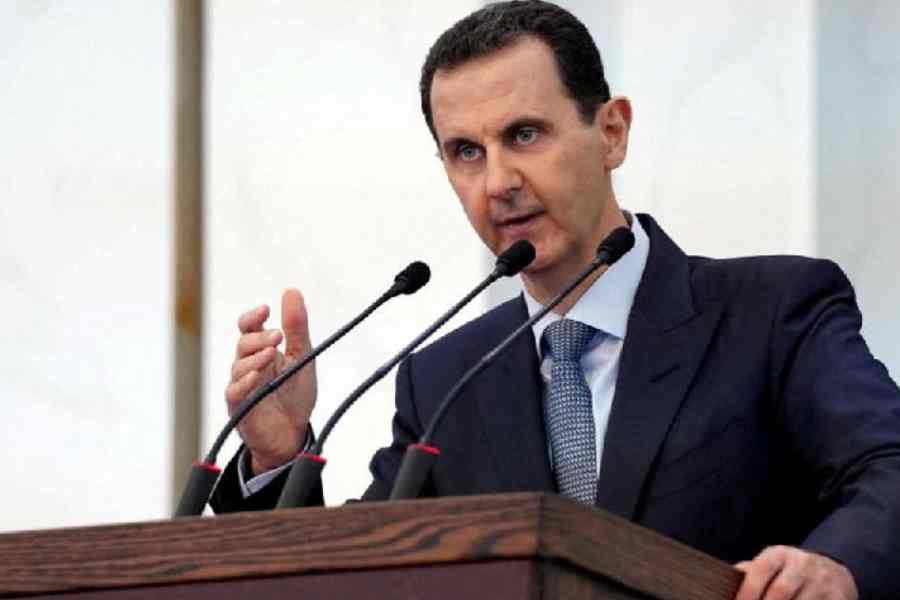Global turbulence continues to manifest itself in a myriad ways in different parts of the world. Regional and international institutional frameworks seem incapable of even reacting post facto to the fast-changing developments. Apart from bemoaning these trends, there is little that the world leadership has to offer at this point. International relations have thus returned to their original primal nature of anarchy wherein nations are deciding their trajectories on their own.
After ruling Syria for nearly half a century with brutality, Bashar al-Assad’s dictatorship fell within a fortnight with astonishing speed. In 2011, Syrians had made their first move against him but Assad managed to survive with the help of Iran and Russia. For a while, it looked as if he had enough power to continue as another Middle Eastern strongman. The United States of America and Israel did make life difficult for Assad — one by targeting Iran and its proxies and the other by supporting Ukraine vis-à-vis Russia — but for both, Assad’s Syria was only a part of their larger regional strategic rejig.
As the rebel forces swept away the Assad regime, the euphoria of doing away with a sadistic dictatorship is real. But what is equally real is a sense of dread about what comes next. The rebels are insisting that they are no longer jihadists and have fought against Assad as a nationalist Islamist force but that remains to be seen. Their past tells a different story and that is yet to be reconciled. The United Nations has designated the Hayat Tahrir al-Sham a terrorist organisation and the US has placed a $10 million bounty on Abu Mohammed al-Jolani, the leader of the HTS. Jolani has been presenting his moderate face to the world in recent days, talking about institutions and the will of the people. But apprehensions remain about Syria’s future political character and its social compact.
The outgoing US president, Joe Biden, has described the fall of Assad as a “historic opportunity for the long-suffering people of Syria to build a better future”. But his secretary of defence has cautioned that the ISIS could attempt to “take advantage” of a power vacuum in Syria. For the US, the fall of the House of Assad has added another layer of complexity to an already burning Middle East. Washington might savour Russia’s inability to come to Assad’s aid on this occasion. Almost a decade ago, Vladimir Putin had directly intervened in Syria, sending his air force and Russian mercenaries to bolster Assad’s struggling forces in partnership with Iran. It enabled Assad’s regime to reclaim territory and solidified Putin’s position as a central figure in regional and international affairs. With Assad now gone, Putin’s stance on Ukraine may harden further as he cannot afford to look weak on another front.
If the Syrian developments alert us to the possibility of changes in the balance of power in the Middle East, the surprising political events in South Korea are suggestive of the fragility and also the inherent resilience of democratic institutions.
The South Korean president, Yoon Suk Yeol, had declared military rule ostensibly to defeat “anti-State forces” in Parliament and to tackle challenges from North Korea, but it was his dwindling popularity in the wake of corruption charges against the First Lady that he was trying to address. Martial law was a distant memory in South Korea and had not been declared ever since it became a parliamentary democracy in 1987. There was an instant reaction with not only the Opposition but also leaders of Yoon’s own party coming out against the decision and ordinary people challenging it in public, forcing Yoon to rescind his move within six hours.
Assad’s ouster and Yoon’s retreat underscore the importance of channelling people power through effective institutional frameworks. The challenge in post-Assad Syria will be to build institutions that can respond to the aspirations of those who are glad to see Assad go. When South Korea was steadying itself as a democracy, the global order could support the nation in its march toward building strong and resilient institutions. But today, Syrians need to craft their destiny amidst a global (dis)order that has no time for norms or institution-building.
Harsh V. Pant is Professor of International Relations, King's College London











